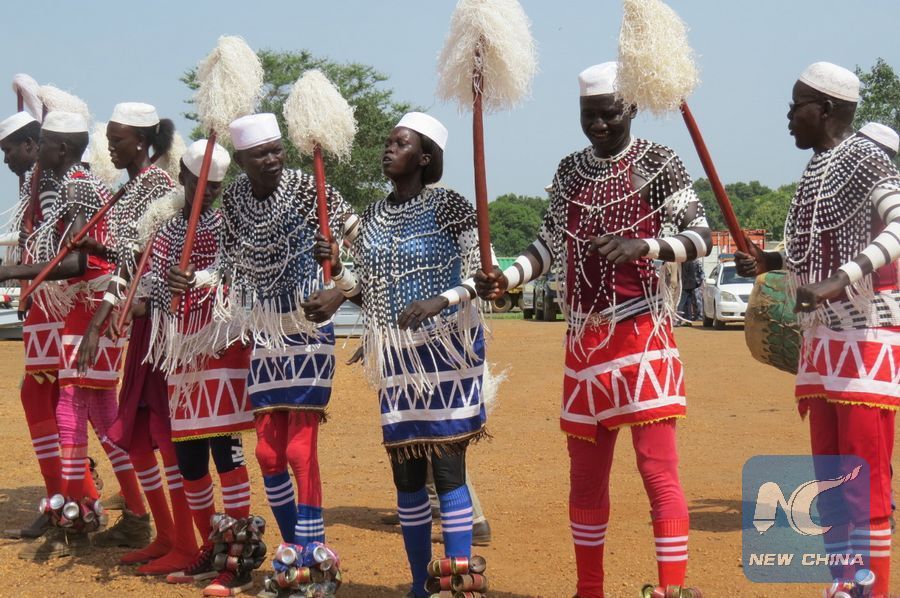
Workers go about their work at a power plant site, in Juba, capital of South Sudan, April 19, 2017. South Sudan on Thursday installed machines at the newly built 100 MW power plant in the capital that will increase access to electricity from the meager one percent to 21 percent by 2020. (Xinhua/Denis Elamu)
JUBA, April 20 (Xinhua) -- South Sudan on Thursday installed machines at the newly built 100MW power plant in the capital that will increase access to electricity from the meager one percent to 21 percent by 2020.
Dhieu Mathok, the Minister of Energy and Dams, said the 100 MW power plant will close the gap of 500 MW the country needs to propel its electricity supply and enhance conducive climate for business investments.
"The total demand according to the 2012 power assessment was 500 MW. The construction of this 100 MW will close that gap and raise electricity access to 21 percent," he said in Juba, adding that the suspension of the Norwegian support for construction of the 850 Fula dam necessitated this.

South Sudanese Vice President James Wani Igga (Front) lays a foundation stone at a power plant site, in Juba, capital of South Sudan, April 19, 2017.(Xinhua/Denis Elamu)
The National Electricity Act 2016 authorizes the government to partner with private sector under the public-private partnership to develop the nascent energy sector in the country whose potential has been curtailed by outbreak of conflict since December 2013.
"There are many young engineers and skilled laborers who are engaged with this project," said Mathok.

Dancers perform during the installation of power equipments at a power plant site, in Juba, capital of South Sudan, April 19, 2017. (Xinhua/Denis Elamu)
He also disclosed that there are currently 5,000 generators operating day and night in Juba alone and that they consume eight million liters of fuel. The new plant will help reduce rampant fuel shortage and save on revenue spent on purchase of fuel.
South Sudan won independence from Sudan in 2011 with barely any road infrastructure, electricity and hopes to rebuild and improve on its poor ranking in the cost of doing business by the World Bank.

